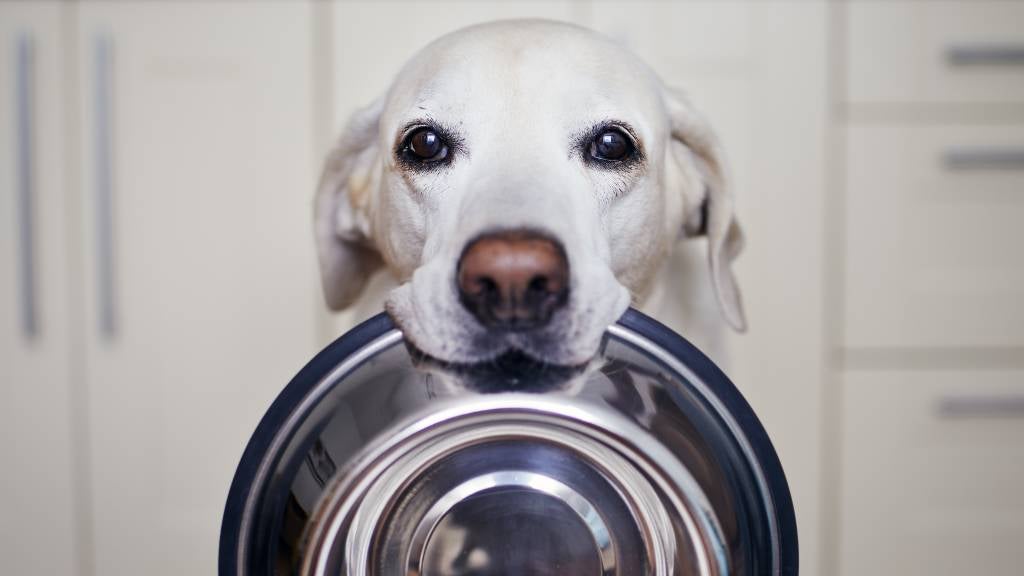10 foods you shouldn’t feed to your dog

Dogs are like kids – they love to eat, and they're always begging for a bite of whatever is on your plate. But just because they're cute doesn't mean you should let them eat whatever they want.
But while some human foods are okay for dogs to eat, others can be toxic – or even deadly. So, before you give in to those puppy dog eyes at the dinner table, make sure you know which foods to avoid.
Here are ten of the most dangerous foods that you should never feed your pup.
1. Chocolate
We've all heard that chocolate is bad for dogs, but many people don’t realise just how dangerous it can be. Chocolate contains a chemical called theobromine, which is toxic to dogs and can cause vomiting, diarrhoea, tremors, seizures, and even death. The level of toxicity can be calculated to determine if your dog has consumed a dangerous amount of chocolate.
2. Grapes and raisins
Grapes and raisins can also be toxic to dogs, although the exact mechanism is unknown. The effect varies between dogs and even tiny amounts can cause kidney failure . In severe cases, they can cause fatality, lethargy, excessive thirst, vomiting, and other conditions due to their toxic effects on the kidneys.
3. Onions and garlic
Onions and garlic contain compounds which can damage a dog’s red blood cells and cause anaemia.
4. Xylitol
Xylitol is a sweetener which is widely used in sugar-free products such as chewing gum and some peanut butter brands as well, so owners should check before buying. It’s also toxic to dogs, with even small quantities causing low blood sugar, seizures, and even fatal liver failure.
5. Avocado
Avocados contain a substance called persin, which can cause vomiting and diarrhoea in dogs. The pit is also a choking hazard.
6. Raw potato
Raw potatoes contain a substance called solanine, which can be toxic to dogs. They can also cause intestinal blockages, upset stomach, spike blood sugar levels in diabetic pets and cause kidney problems.
7. Yeast dough
Yeast dough can expand in a dog’s stomach, causing pain and potentially leading to serious gastrointestinal issues such as bloat.
8. Milk and dairy products
Most dogs are in fact lactose intolerant, and will often end up feeling unwell after consuming large amounts of milk and other dairy products. While small amounts of these foods may not cause any problem, if ingested in large amounts they can cause digestive upsets (e.g. vomiting and diarrhoea). It’s best to avoid these foods when it comes to keeping a regular diet for your dog.
9. Caffeine
Caffeine can be dangerous to dogs, causing vomiting, increased thirst, abdominal discomfort, seizures, and (in large quantities) even death. So, keep coffee, tea, and energy drinks out of reach.
10. Macadamia nuts
Macadamia nut poisoning can cause dogs to develop weakness in their rear legs, show signs of pain, have tremors and develop a low grade fever.
As well as these more dangerous foods, it's best to keep the "human food" just to the humans. Table scraps are often high in fat and salt, which can lead to obesity, digestive problems and pancreatitis. It’s best to keep your dog's diet within the species!
And while cooked bones may seem like a harmless treat, they can actually splinter and cause serious internal injuries. Feeding bones also carry some risks associated with feeding raw meat/bones, in particular the bacteria and parasites that can be found in raw dog food products carry health risks for both dogs and people. Never attempt to induce vomiting at home unless directed to do so by your veterinarian. If you believe your dog has ingested something poisonous, please contact the New Zealand Animal Poisons Helpline and take your dog to your veterinary practice immediately.
Next time you're tempted to share your lunch with your four-legged friend, remember that not all foods are created equal.
Any pet owner knows that sometimes our furry friends can get into things they're not supposed to. Whether they're snacking on your shoes or raiding the garbage can, it can be important to be prepared for the worst. SPCA Pet Insurance can help to cover a portion of eligible vet bills should your dog become unwell. Love them, protect you!
31 Oct 2022